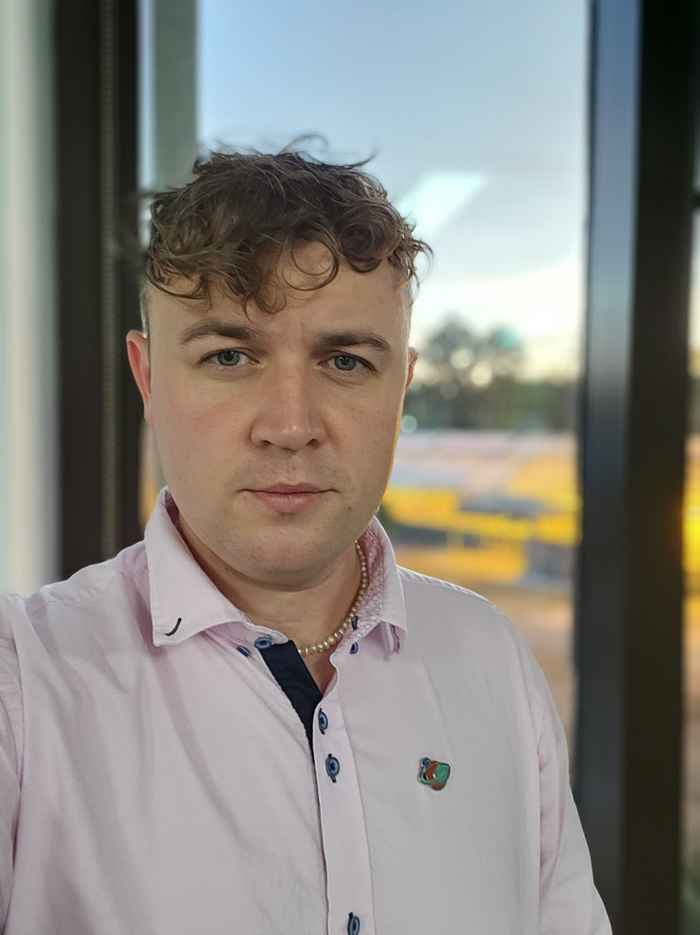Lee James Conneely
Graduate Green Life Sciences

Why did you choose this programme at the University of Amsterdam?
I chose the Green Life Sciences master track because I was eager to build a career in plant science. The University of Amsterdam appealed to me for several reasons: its world-class research reputation, strong international profile, the Netherlands' remarkable success in agriculture, and the chance to live near my favourite city. It also offered a unique opportunity to experience how laboratories operate in different countries — a crucial aspect in a field where global collaboration and cross-cultural understanding are essential.
How much freedom did you have when selecting courses or projects? Are there opportunities to tailor the programme to your interests?
There was a lot of freedom in choosing courses and projects – I recall we had a project fair where labs presented their work in a poster style session which we, the students, could then apply to join our favourite project. For the second-year research project I was very impressed by the variety of research projects available to us: at Science Park, with industry, or in my case in an international laboratory. Initially, I was interviewing to do my second-year research project with an industry partner of Science Park until the programme coordinator Professor Michel Haring, who was paying close attention to our research interests, presented us with an international opportunity to research Cannabis sativa, a project I was personally interested in. Not only was there an excellent selection of projects tailored to individual interests, but the faculty also actively made efforts to help us find our own niche. I will always be grateful for this.
How practical or theoretical is the programme?
In my opinion this was an excellent programme, I cannot emphasise this enough. The programme was a perfect blend of theoretical and practical. I really enjoyed the first-year theoretical courses and mini research project, while the second year was strictly practical giving us clear insight into the life of a researcher, preparing us for our futures.
How would you describe the atmosphere within the programme?
The Green Life Sciences track was one of the highlights of my life. The atmosphere was friendly, hard-working, inspiring, and ultimately laid the foundation for my career. At the UvA I would learn about glandular trichomes for the first time at the lunch table from Professor Robert Schuurink who was taken aghast that I did not know what they were - I would later go on to build a career around glandular trichomes. There were courses that included both individual and group work. A personal favourite of mine was Professor Petra Bleeker’s Master Classes where we would critically analyse papers, come up with two questions, and critique the paper as a group. I thought this was a nice touch.
What types of thesis or graduation projects are possible? Can you provide an example of your own project?
There is a huge variety of graduation projects presented in a very accesible way through the project fair where labs presented their work in a poster conference style setting in the Science Park foyer. There are many researchers with important industry partners which ultimately generated opportunities for students to lean towards industry research as well. Additionally, there were opportunities to study abroad – project coordinator professor Michel Haring recalled I was interested in pursuing a career in Cannabis research and went out of his way to bring attention to an opportunity to study Cannabis glandular trichomes in Lismore, Australia. I applied to and was selected for the project where I isolated glandular trichomes from Cannabis and performed bottom-up proteomics. I would later go on to publish this work – setting the scene for my PhD.
Was it easy for you to find a job after your master’s? How did you end up in your current role?
After my master’s degree I interviewed for a PhD position with the Australian Research Council Hub for Medicinal Agriculture where I would go on to perform epigenomics in Cannabis sativa glandular trichomes as well as the first single cell multiomics assay in Cannabis sativa. Following the success and technical development of the single cell multiome assay in green leaf tissue I was recruited to perform the assay in tomato as part of the Australian research council centre of excellence in plants for space where I currently work as a post-doctoral research officer with the aim of metabolically engineering different trichome types and other cells to produce medicinally important metabolites for the Artemis missions to Mars.
What advice would you give to someone considering this master’s programme?
My advice to anyone considering a Master’s degree in plant science is to choose this one. The UvA has an excellent academic track record, the Green Life Sciences Master's programme really offers every opportunity a young scientist will need to prosper in this field, and its all set in one of the most beautiful and student friendly cities in the world.